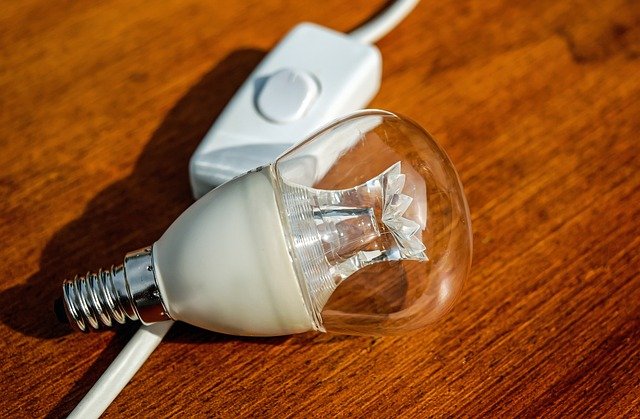A Reliable Generator Option for Today’s Homeowners
Power outages can strike at any time, leaving homes vulnerable to food spoilage, uncomfortable temperatures, and security concerns. Modern homeowners increasingly seek reliable backup power solutions that align with both emergency preparedness and environmental consciousness. With advancing technology, today's power generators offer more options than ever, combining reliability with sustainability to protect homes during unexpected outages.

Understanding Power Generator Options
Power generators have evolved significantly over recent years, providing homeowners with various options to meet their specific needs. Traditional generators typically run on fossil fuels such as propane, natural gas, or diesel. These conventional generators can provide substantial power output but require proper ventilation due to carbon monoxide emissions and need regular maintenance to ensure reliability. For homeowners with higher power demands, these traditional systems might be necessary, especially when needing to power larger appliances or entire home systems during extended outages.
Alternative options have emerged as technology has advanced, including inverter generators, which provide cleaner power with less noise and better fuel efficiency. These systems are often more suitable for sensitive electronics and can be more compact than their conventional counterparts. When selecting a power generator, homeowners should consider factors such as power requirements, fuel availability during emergencies, noise tolerance, and maintenance capabilities.
Benefits of Solar Power Generators
Solar power generators represent one of the most significant advancements in home backup power systems. Unlike traditional generators, solar options harness energy from the sun, storing it in battery systems for use when needed. This renewable approach offers several distinct advantages for today’s environmentally conscious homeowners. Solar power generators produce no emissions during operation, making them safe to use indoors without ventilation concerns. They operate silently, eliminating the noise pollution associated with conventional generators.
Perhaps most importantly, solar power generators don’t require fuel purchases or storage, reducing ongoing costs and maintenance needs. Once installed, these systems can provide years of reliable service with minimal upkeep requirements. Many solar generators also offer scalability, allowing homeowners to expand their capacity by adding more solar panels or battery storage as their needs change or budget allows.
Exploring the Patriot Power Generator
The Patriot Power Generator has gained attention in the solar generator market as a portable, compact solution designed specifically for emergency preparedness. This solar generator typically features lithium-iron-phosphate battery technology, which offers longer cycle life than many other battery types. The system includes foldable solar panels that can be deployed during emergencies to recharge the unit, providing renewable energy even during extended grid outages.
One notable aspect of the Patriot Power Generator is its focus on portability and ease of use. Unlike whole-house generators that require professional installation, this system can be set up quickly by homeowners with minimal technical knowledge. The unit typically includes multiple output options including AC outlets, USB ports, and 12V connections to power various devices and small appliances. While not designed to power entire homes, these systems can maintain essential devices like refrigerators, medical equipment, communication devices, and lighting during emergencies.
Sizing a Generator for Your Home Needs
Determining the right size generator for your home requires careful assessment of your power requirements during outages. Most homeowners don’t need to power their entire home during an emergency but should focus on essential systems. Begin by creating an inventory of critical appliances and devices you’ll need during a power outage, such as refrigerators, freezers, medical equipment, heating systems, well pumps, and communication devices.
Calculate the starting and running wattage requirements for each appliance, noting that many devices require a higher wattage during startup than during continuous operation. For example, a refrigerator might need 700 watts to run but 2,100 watts to start. Once you’ve tallied your essential power needs, select a generator with capacity exceeding your total requirement by 20% to provide a safety margin. For whole-house systems, professional assessment is recommended to ensure proper sizing and safe installation.
Power Generator Cost Comparison
When investing in backup power, understanding the cost implications of different systems helps homeowners make informed decisions. Generator prices vary significantly based on type, capacity, features, and quality.
| Generator Type | Initial Cost Range | Fuel/Operational Costs | Lifespan |
|---|---|---|---|
| Portable Gas Generator | $500-$2,000 | $15-30/day of operation | 3,000-8,000 hours |
| Whole House Generator | $3,000-$15,000+ | $25-50/day of operation | 10,000-30,000 hours |
| Patriot Power Generator | $2,000-$4,000 | Minimal (solar) | 2,500+ cycles |
| Other Solar Generators | $1,000-$5,000+ | Minimal (solar) | 1,500-5,000 cycles |
| Basic Inverter Generator | $300-$4,000 | $10-25/day of operation | 6,000-10,000 hours |
Prices, rates, or cost estimates mentioned in this article are based on the latest available information but may change over time. Independent research is advised before making financial decisions.
Installation costs create another significant variable, particularly for whole-house systems which typically require professional installation ranging from $500 to $3,000 depending on complexity. Solar systems generally have lower operational costs over time but higher upfront investment. When calculating the true cost of ownership, consider fuel storage requirements, maintenance expenses, and potential fuel availability issues during widespread emergencies.
Maintenance Requirements for Reliable Operation
Even the most dependable power generators require regular maintenance to ensure they’ll function when needed most. Traditional fuel-powered generators need consistent attention, including regular oil changes, air filter replacements, spark plug inspections, and test runs. Manufacturers typically recommend running conventional generators for 20-30 minutes monthly under load to keep internal components lubricated and prevent fuel system issues. Additionally, fuel stabilizer should be added to stored fuel to prevent degradation and carburetor problems.
Solar generators require significantly less maintenance but still need attention. Battery systems should be kept at appropriate charge levels even during storage, and solar panels require occasional cleaning to maintain optimal efficiency. All generator types benefit from protection from extreme weather when not in use and visual inspections for signs of damage or wear. Following manufacturer maintenance schedules dramatically improves reliability and extends the operational life of any generator system.
Good generator maintenance not only ensures functionality during emergencies but also protects your investment. Most manufacturers tie warranty coverage to proper maintenance, making documentation of regular service important for warranty claims and eventual resale value.




